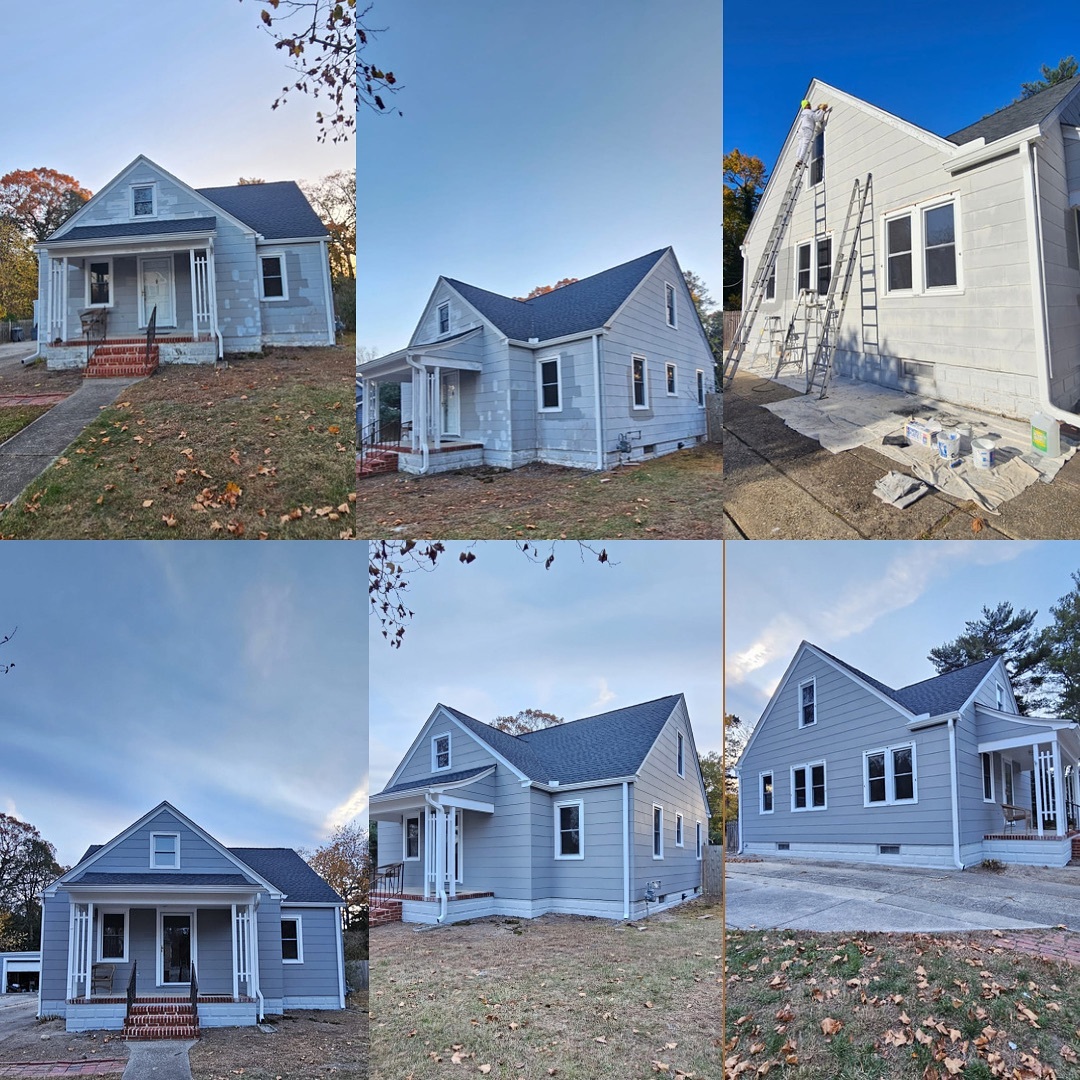How to Make Your Exterior Paint Last Longer in New Jersey

Exterior paint is more than just a color; it plays an important role in protecting your house against the elements. Whether it's standing up to the scorching sun of southern Florida, or countering those gusty Jersey winds, everyone’s home has some battle to wage.
But how can you ensure that this essential aspect of your home keeps its integrity? In this guide, that's the question we set out to answer. After all, nothing contributes to the protection and fresh look of a home than its exterior paint. So let's dive in.
Understanding Exterior Paint and Weathering
Exterior paint is subjected to a relentless barrage of environmental conditions. Sunlight, moisture, temperature fluctuations, and pollution all play their part. We won't go into the science of it all, but just think about how you would feel left out under these same conditions! In short, harsh UV rays dry out the resin in paint causing it to shrink, fade, and crack. And even though paint is designed to expand and contract with the surface, over time, paired with temperature changes and moisture, even the best exterior paint will begin to show its age.
Preparing for a Lasting Paint Job
The longevity of your paint job begins well before the first brush stroke. Proper surface preparation is key, including:
- Thorough cleaning to remove dirt, mildew, and peeling paint
- Sanding to create a smooth base
- Applying a primer (especially important for new surfaces or when changing paint colors drastically)
- Selecting the right paint—considering both the material of your home's exterior and the local climate.
Application Techniques for Durability
Even the best paint can fail if applied incorrectly. That's why it's just as important that an exterior paint job is done at the right time, in the right way, and with the right knowledge. Only a local professional will know the precise needs of your specific home and location, but these are a few general rules of thumb:
- Ideal Temperature: Aim for painting in temperatures ranging from 50°F to 90°F. Extreme heat or cold can affect the drying process and the final finish.
- Cleaning: A clean surface is crucial for ensuring good paint adhesion. Have your home pressure washed before it is painted.
- Good Quality Paint: Invest in high-quality exterior paint. It is more durable and fade-resistant, and it provides better coverage and longevity.

Protecting Your Paint Job
Once you take all the care you can in getting a quality paint job, maintenance will become the next greatest contributor to extending the life of your exterior paint.
- Regular inspections: This will help catch issues like cracks or peeling early, before they spread.
- Regular Cleaning: Consider having your home regularly pressure washed to keep away dirt and pollutants that degrade paint over time.
- Trimming Plants: Making sure surrounding foliage doesn’t build up onto the surface will keep the paint from getting scratched and will keep mold from growing.
Knowing When to Repaint
Even when all precautions and considerations are taken, every paint job will need a fresh coat eventually. Faded paint, chips, cracks, blisters–any of these sound familiar? These might as well be little notes all over your home's exterior saying: “Needs repainting!” In all seriousness, these signs could mean your home is susceptible to further damage, so it's important to touch up bad areas or get a repaint. Or you may just be getting sick of the same old paint that you’ve been looking at for a while. This is also a good indication that it's time for a fresh coat.
Exterior painting is a big project, but it doesn't have to be stressful or inconvenient. At Clean Lines Painting, you can put your next paint job in good hands. We’re here to help!
Frequently Asked Questions
Q: How often should I repaint the exterior of my home?
A: Repainting is generally recommended every 8-10 years, though this varies based on the paint type, climate, and the condition of the existing paint.
Q: Can I apply a new coat of paint over an old one?
A: Yes, but only if the old paint is in good condition. Any peeling, blistering, or flaking areas must be removed and properly prepped before repainting.
Q: What time of year is best for painting the exterior of my house?
A: Spring or fall are ideal, as these seasons typically offer mild temperatures and lower humidity, creating optimal conditions for paint to dry and adhere properly.













